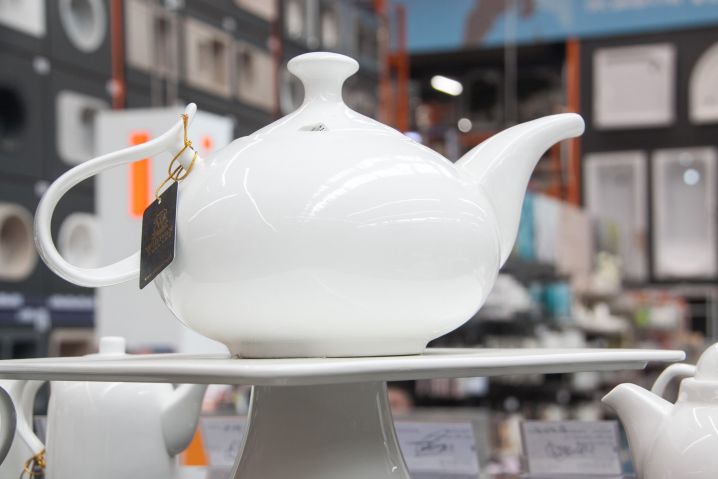Over time, the teapot becomes covered with a terrible coating, and then most housewives diligently scrub it with a sponge treated with dishwashing liquid.
This fills the eyes of true connoisseurs of the drink with horror and indignation. Let's figure out how to properly wash a porcelain and glass teapot.
The smell and particles of chemical detergent will affect the quality of the brewed tea, so true connoisseurs do not use dishwashing liquids to wash teapots. Much depends on the material the teapot is made of. It can be glass and porcelain, ceramics, earthenware and even metal. And if you brew tea according to all the rules, then you need to wash it the same way.
What to wash with
Of all the available means, it is better to choose those that do not leave traces or odors. Baking soda, table salt, and lemon juice or its artificial analogue are beyond competition. Vinegar is used less often.
And if we return for a moment to the history and traditions of tea drinking, then in the East it is not customary to wash (as it happens in the understanding of a modern person) the teapot.

How to wash properly
If we are talking about glass, which most modern citizens use, then it is better to wash the glass teapot after each brewing. Especially French presses. Otherwise, mold will appear. It is better to use baking soda for this. If limescale appears, vinegar (6%) will easily deal with it.
Ceramics, porcelain, faience
These items should not be rubbed with the hard side of a sponge. But after each brewing, it is enough to simply throw away the old tea leaves and rinse the inside of the teapot. As for the tea deposits, they do not affect the taste, so it is not necessary to wash them off, and according to gourmets, it is even undesirable.








